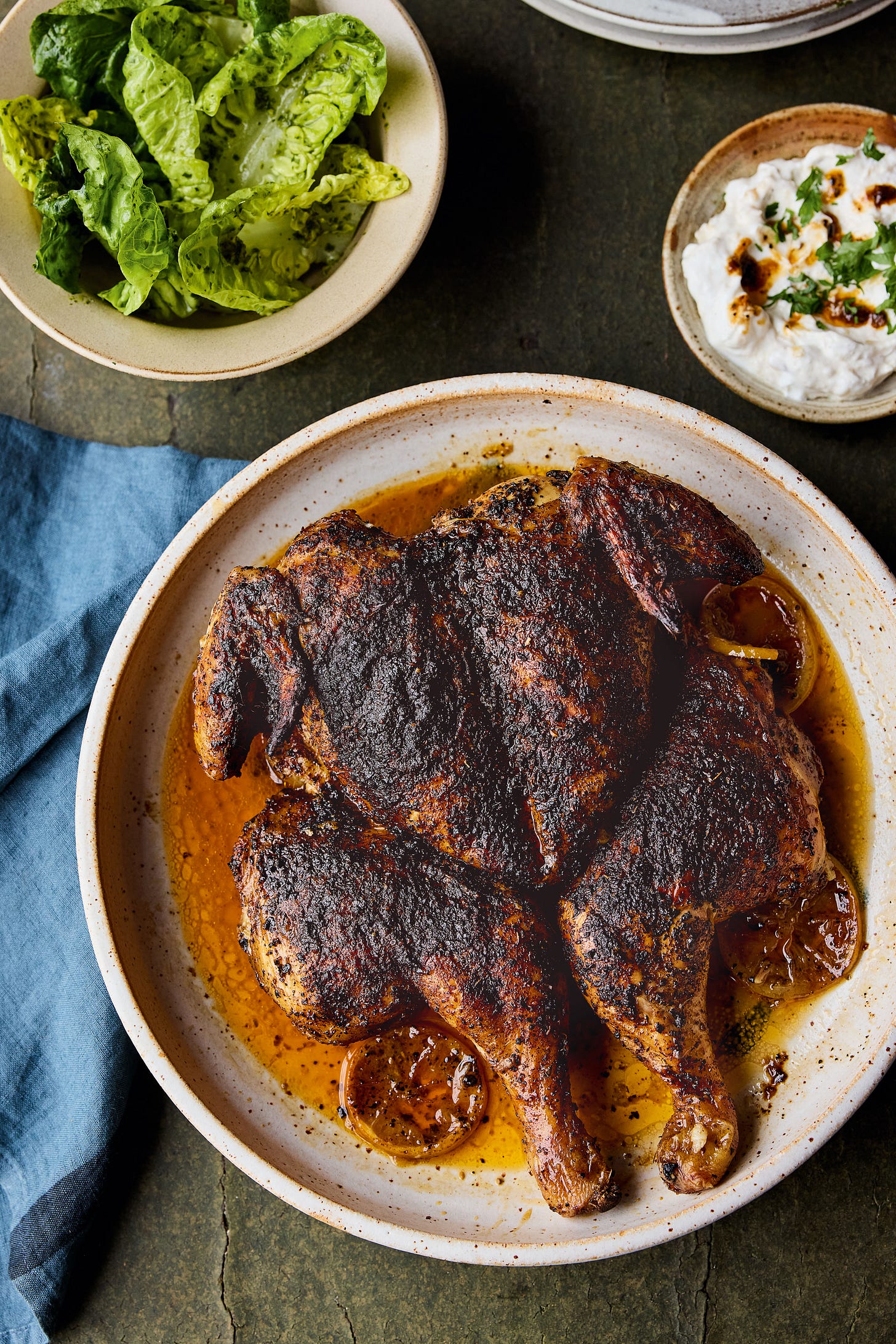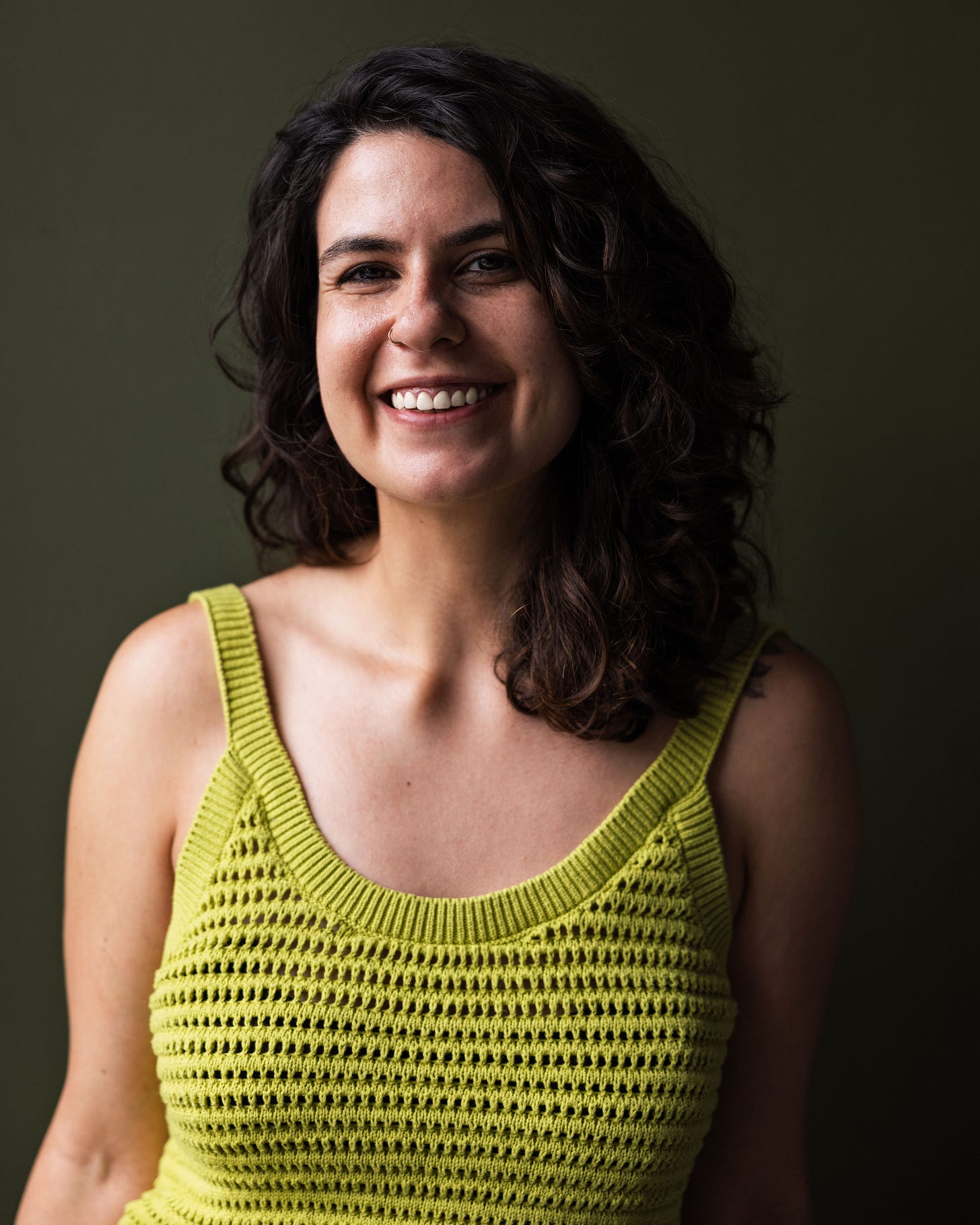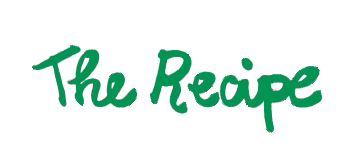If you were looking for a sign to roast a chicken this weekend - let it be this Loomi Lemon Chicken. A roast chicken is welcome on my table any time of year, but something about the start of Spring makes me crave one even more than usual. There is something so satisfying about roasting a bird, particularly a spatchcocked marinated one like today’s recipe, it feels low effort but incredibly high reward. The leftovers make excellent salad, sandwich and snack material and the carcass can be boiled to become a deeply rich and savoury broth. However you roast a chicken, you are doing your future self a favour.
Before we dive into the chicken of it all, I wanted to remind you that I have partnered with BookBar on exclusive signed copies of my cookbook In for Dinner that comes out on May 1st - you can get yourself a signed copy by pre-ordering here. Pre orders are so important for a debut author like myself and it would mean the world to me if you chose to support an independent bookseller like BookBar if you are planning on pre-ordering. Ok that’s enough about my book and time to hear all about Noor’s!
This week’s roast chicken recipe comes from Noor Murad and her new cookbook Lugma. I’ve been following Noor’s work for a number of years, through her time at the Ottolenghi test kitchen and beyond. I also learned everything I know about how to make the silkiest hummus from a recipe she shared on her Instagram a few years ago - well worth checking out if you still struggle to get a silky soft hummus at home. Lugma is Noor’s first solo book, it is both a visual and edible delight, whilst also being a beautiful ode to her home country of Bahrain. I learned so much from her writing, about the cuisine, the ingredients and the way of life. I really recommend getting yourself a copy, and after you’ve made this chicken, I’m sure I won’t need to convince you any further.
Thanks to Noor for sharing this incredible recipe with The Late Plate and for having this chat with me. I hope you enjoy reading it as much as I did putting it together. Sending love and roast chicken, Rosie x
For anyone who doesn’t know you already, please can you introduce yourself, tell us a little about who you are and what you do?
I’m a chef and author born and raised in Bahrain to an Arab dad and an English mum. I’ve worked in food since I was 16 years old and I’ve been lucky enough to work in the industry and gain experience in Bahrain, Germany, New York, Hawaii and now London. When I moved to London 8 years ago I began working at Ottolenghi and eventually went on to run the Ottolenghi Test Kitchen and write the two test kitchen cookbooks. I now work freelance and have invested a lot of my time into my latest project, my first solo cookbook LUGMA.
Congratulations on your first solo book Lugma, it’s really beautiful and full to the brim of things I want to cook and eat. How did it feel to be writing a book that is wholly yours, rooted in your own experience and how did the experience of writing it differ from co authoring your books with Yotam Ottolenghi?
Writing a book that is as personal as Lugma was a whole different experience for me. There was a different feel and narrative to writing the Ottolenghi test kitchen books, where the voice was a lot more about the ‘we’ (as in the test kitchen team) rather than about the individual. So even though a lot of the recipes were my own, they weren’t really depicted as such, which in turn made me (the author) a little more detached I think. Lugma, on the other hand, is really an open book about my life and upbringing, so it makes me feel a lot more vulnerable and slightly apprehensive about sharing it with the world. I am really proud of it though, and I know it’s a true reflection of me.
Speaking of Ottolenghi, I’m fascinated by the test kitchen and what it must be like to work there. Can you talk us through a typical day at work and specifically what lunch time looks like?
I’m sure things have shifted slightly since I worked there (I left 2 years ago), but the best days for me were always the ones where I brought a dish in my head to life in the test kitchen, without too many hurdles along the way! But as much as it was a creative space, it was also rigorous, repetitive and methodical. Recipes needed to be tested and retested to minimise error and I continue to use this process in my cooking today.
As for lunchtime, I think the upside to working in a test kitchen is also the downside to working in a test kitchen i.e. tasting food continuously throughout the day means that come lunchtime, you’re never really hungry.
For anyone new to Bahraini cuisine and the flavours of the middle east, could you recommend a recipe from the book that would be a great place to start, and why?
I would start with the tomato, potato and saffron rice. This dish is the perfect example of how the humble rice grain can be transformed into something quite magical given a little love and few kitchen techniques. I also secretly (not so secretly) want others to join in on my rice obsession.
If you could give your 18 year old self some advice, what would it be?
I would tell her to stop being so unkind to herself, to believe in her own abilities and to start being her own best cheerleader. I would also teach her how to say NO.
Can you describe a typical morning for me, in particular, any morning rituals you enjoy?
My morning starts with a big old mug of black coffee and is followed by a bowl of porridge. I go through phases with my porridge but at the moment it's oats, chia seeds, 60/40 whole milk and water and a chopped up date all cooked together. Favourite toppings right now are banana, date molasses and tahini. I then check emails, go through my to-do list for the day, do some stretching and head out for a run. If not a run then I’ll head to the gym. Either way, movement is what sets me up for the day and is what keeps me focused and motivated.
And your ideal breakfast?
Weirdly my ideal breakfast is not the porridge I have on most mornings. Porridge is my “convenience” breakfast; it’s quick and digests easy pre-run. My ideal breakfast is freshly baked mana’eesh or fatayer, with fudgy boiled eggs, a soft cheese like labneh and a chopped salad. But that’s more like a weekend, slow and relaxed type breakfast that you eat with loved ones.
As we move into Spring, which seasonal ingredients are you looking forward to cooking with and what will you be making?
I’ve never appreciated Asparagus more than I have since moving to the UK. I think British asparagus is just so delicious and needs nothing more than some lemon and butter. I’m also looking forward to having a lot of spring greens in my diet again, and lightly cooking rather than stewing or slow cooking as I have been through winter. I will most definitely be making the Springtime Fattoush that is in Lugma, which is full of herbs, radishes and shelled broad beans- it is a very happy salad.
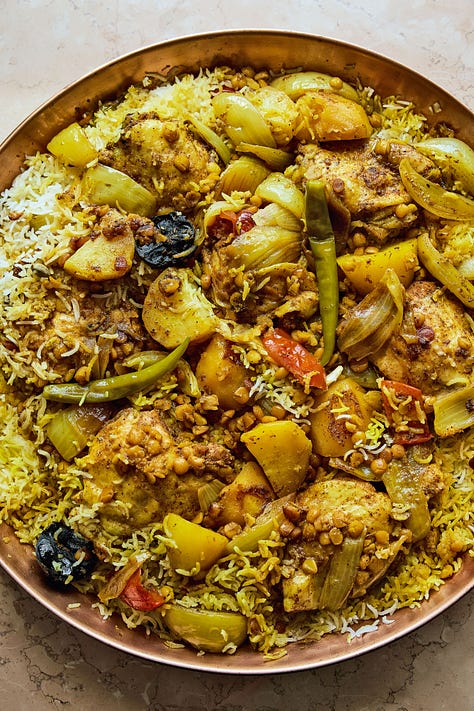
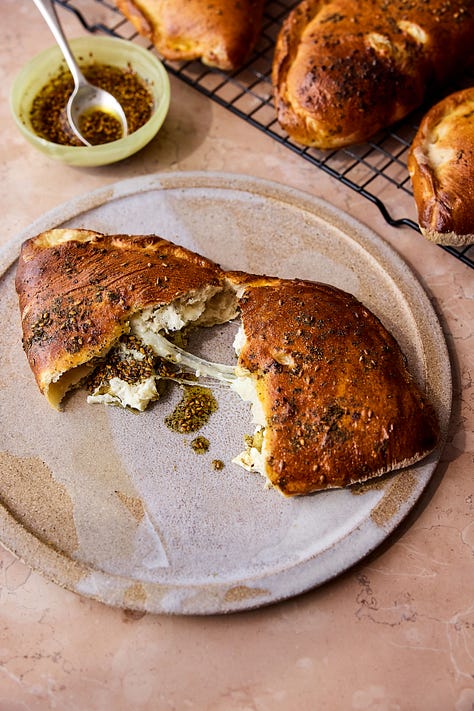
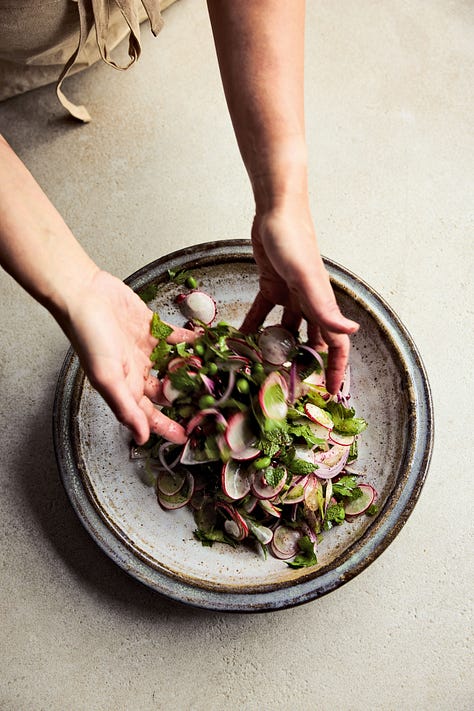
Do you have a favourite place to shop in London for the less widely known middle eastern ingredients in Lugma, such as black limes, Khobez Lebnany, Basra date molasses and Akkawi.
My favourite shop is in Kentish Town and it’s called Phoenicia. This was the shop that cured my homesickness when I first moved to London, and it’s still the shop I go to when I need to stock up on my essential ingredients.
If you were to have your family round for dinner and could cook one recipe from the book, what would it be?
It would probably be Feg’ata, a glorious bottom of the pot chicken and rice dish. “Fe” in Arabic means “in” and “ga’a” refers to the bottom of something. So in this case the chicken steams gently in the bottom of the pot with loads of onions, yellow split peas, potato, tomato, loads of spices and ghee and is topped with par-boiled rice and doused in saffron and rosewater. The whole thing is covered and left to steam gently and the kitchen smells amazing in the process. Then you flip out the dish so the bottom is top and the top is bottom and it always feels so special when you do this. It’s a generous dish and definitely meant for multiple mouths!
Lugma: Abundant Dishes & Stories from My Middle East by Noor Murad (Quadrille, £28) Photography: Matt Russell
Keep reading with a 7-day free trial
Subscribe to The Late Plate by Rosie Kellett to keep reading this post and get 7 days of free access to the full post archives.





